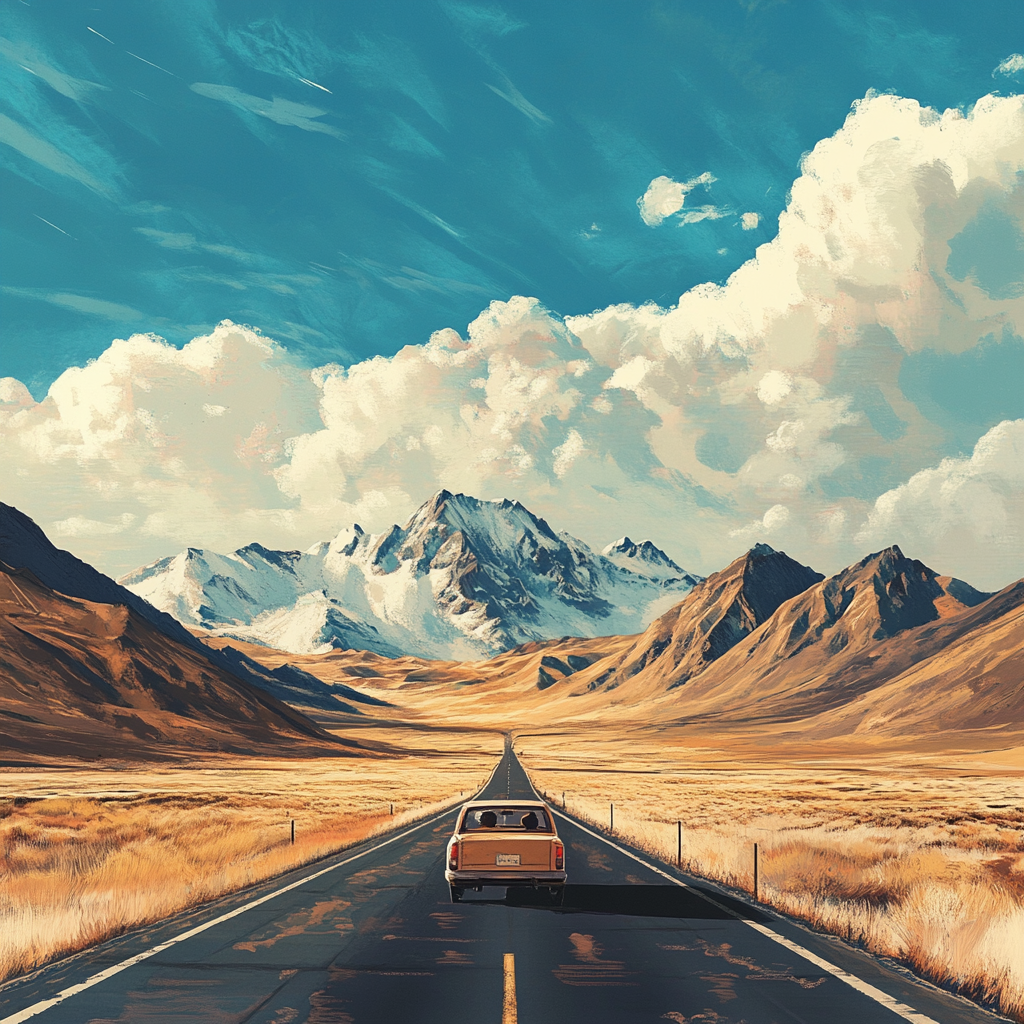There’s a quiet revolution happening on the backroads and in the trailhead parking lots of America. You might not notice it at first—just a few dusty vehicles pulled off the highway, maybe a Subaru with blackout curtains or a Tacoma with a sleeping platform in the back. But these aren’t just road trips. They’re something more. Something deeper.
This is the rise of the modern nomad.
And at the heart of this movement? Car camping.
More than just a budget-friendly way to spend the night, car camping has become a lifestyle and philosophy. It’s a declaration of freedom—freedom from rigid schedules, freedom from consumer culture, freedom from the belief that adventure has to be expensive, or that you have to “have it all figured out” before you go.
Let’s unpack what this really means—and why so many people are embracing the simple, liberating, profoundly human act of sleeping in their vehicle.
1. Redefining Home
We grow up with a fixed idea of “home” as a structure—four walls, a mortgage, a mailing address. But what if home wasn’t a place? What if it was a feeling?
Car camping invites you to reconsider where you find comfort. A blanket in the backseat. A familiar mug used for fireside coffee. A view of the stars from your rear window. These become your anchors. Home becomes something you carry with you, not something you’re tied to.
This redefinition is radical. In a world obsessed with accumulation and permanence, car camping offers impermanence as a gift. You’re not trapped by your house—you’re free to move with the seasons, your instincts, or the whims of the open road.
2. The Vehicle as a Vessel for Freedom
A car is more than a mode of transportation—it’s a self-contained ecosystem. It carries your gear, your bed, your kitchen, and your hopes for the journey ahead.
There’s something deeply empowering about knowing that everything you need fits in your vehicle. You’re not beholden to hotels, flight itineraries, or tourist traps. You can pivot at a moment’s notice, take the scenic detour, chase the sunset. You can leave when a place doesn’t feel right—or stay when it does.
This kind of autonomy is rare in daily life. But behind the wheel, with your gear in the back and no fixed destination, you rediscover what it means to choose your path.
3. Embracing Uncertainty (and Finding Peace There)
Most of us are conditioned to avoid uncertainty. We like plans, reservations, backup plans. But car camping teaches you to lean into the unknown.
Where will you sleep tonight? You’re not quite sure. Will it rain? Maybe. Will your cooler stay cold enough until tomorrow? Hopefully. But over time, you become okay with not knowing.
You start to trust your instincts. You become more observant, more adaptable. You realize that not having everything planned doesn’t mean things will fall apart—it means they might fall together in ways you couldn’t have imagined.
This mindset bleeds into the rest of your life. You stop trying to control every outcome and start enjoying the ride.
4. Rebellion Against a Culture of Excess
We live in a society that constantly tells us we need more: bigger homes, faster Wi-Fi, newer clothes, better gadgets. Car camping is a quiet act of rebellion against that mindset.
It says: I don’t need more. I need less. Less clutter. Less noise. Less pressure.
When you camp out of your car, you have to choose carefully what to bring. Every item has a purpose. Every bit of space matters. And the result? You realize how little you actually need to be comfortable, happy, and fulfilled.
It’s not deprivation—it’s liberation. The less you have, the lighter you feel.
5. A Return to Nomadic Roots
For most of human history, we were nomads. We moved with the land, followed the seasons, lived with the rhythm of nature. Settled, stationary life is a relatively recent development—and for some of us, it doesn’t quite fit.
Car camping scratches that ancient itch. It lets us move. It lets us roam. And it reconnects us with something primal: the need to explore, to adapt, to find our place in the landscape rather than build one around ourselves.
There’s a reason it feels so natural to wake up to the sound of wind in the trees or fall asleep to the smell of pine. It’s because we’ve done it for millennia.
6. Slowing Down Without Stopping
In the fast-paced modern world, even rest can become performative. Wellness retreats, digital detox weekends, “slow living” blogs that require you to buy artisanal everything. Car camping offers a simpler path.
You slow down—not because you paid for a curated experience, but because the experience is all around you. There’s no check-out time, no spa schedule, no stress. Just a trail to hike, a view to enjoy, and time to breathe.
But you’re not stationary. You’re still moving, still seeing new places, still growing. You’re not stuck. You’re flowing at your own pace.
7. The Romanticism of the Road
There’s a reason stories of wanderers, drifters, and road-trippers are so enduring. The road represents possibility. It’s a metaphor for freedom, for reinvention, for escape and return.
Car camping plugs you directly into that archetype. You become the protagonist in your own story—not just someone going on vacation, but someone living a journey.
The road offers you space to think, to shed old patterns, to write new chapters. And with each new campsite, each unfamiliar road, each sunrise seen from the back of your car, you’re reminded that life doesn’t have to be rigid.
It can be yours.
8. Building a Relationship With the Land
Unlike resorts or packaged tours, car camping makes you interact directly with the environment. You watch for signs of wildlife. You study maps to find lesser-known spots. You care about Leave No Trace not because it’s trendy, but because you’re a guest in the wild—and good guests show respect.
This fosters a kind of environmental awareness that can’t be taught in a classroom or absorbed through social media. It comes from proximity, from paying attention, from sitting still and listening.
And that awareness often grows into love—and action.
9. Meeting the World on Your Own Terms
Car camping lets you experience places without filters. You’re not seeing a national park from behind a bus window. You’re sleeping just outside its borders, rising with the sun, walking into the forest while the tour groups are still getting breakfast.
You’re meeting places—and people—on your own terms.
Whether it’s chatting with another traveler over a shared fire pit, discovering a tucked-away trail, or stumbling on a town you never planned to visit, these unfiltered moments are the ones that tend to stick with you.
They’re real. And that makes all the difference.
10. A New Definition of Success
Our culture often defines success as stability: a good job, a permanent address, a full calendar. But the philosophy of car camping says: what if success is about freedom?
What if it’s about waking up where you want to wake up? About watching the sunset over a new horizon, not another spreadsheet? About spending more time doing what fills you up, and less time managing what drains you?
It’s not about escaping life. It’s about living it differently.
Final Thoughts: Choosing the Road Less Structured
Not everyone wants to be a full-time nomad. Not everyone should. But there’s something in the philosophy of car camping that can benefit all of us—whether we’re weekend wanderers or long-term roamers.
It reminds us that freedom isn’t a fantasy. It’s a choice. A mindset. A willingness to trade predictability for possibility, comfort for connection, and convention for curiosity.
So the next time you feel stuck, boxed in, or burned out, consider this: maybe what you need isn’t a new routine or a bigger house. Maybe what you need is a set of sleeping bags, a thermos of coffee, and four wheels pointed toward the horizon.
Because on the road, with the wind in your window and everything you need packed behind you, success starts to look a lot like freedom.
And freedom? That’s what feeds the modern nomad’s soul.



